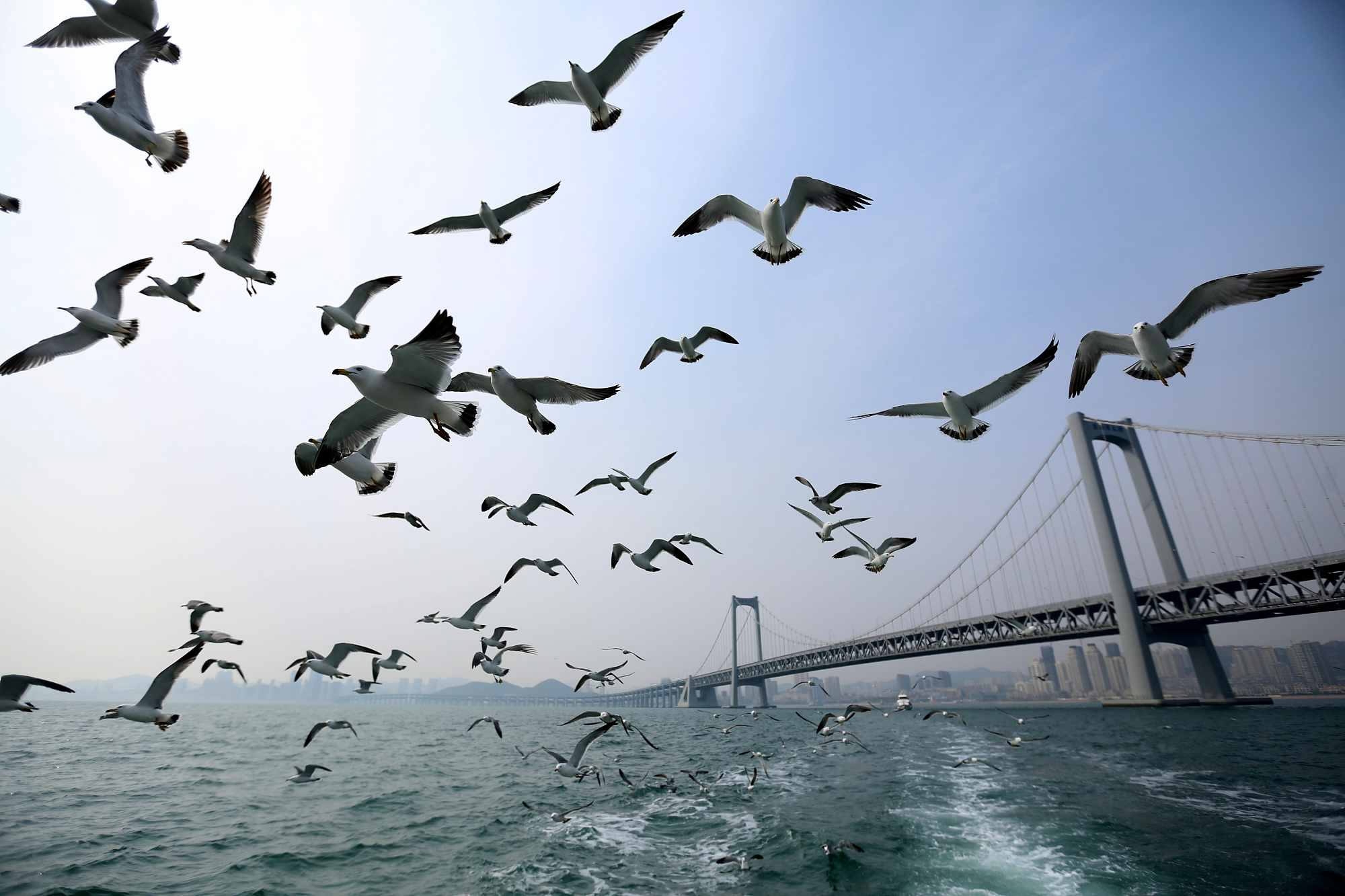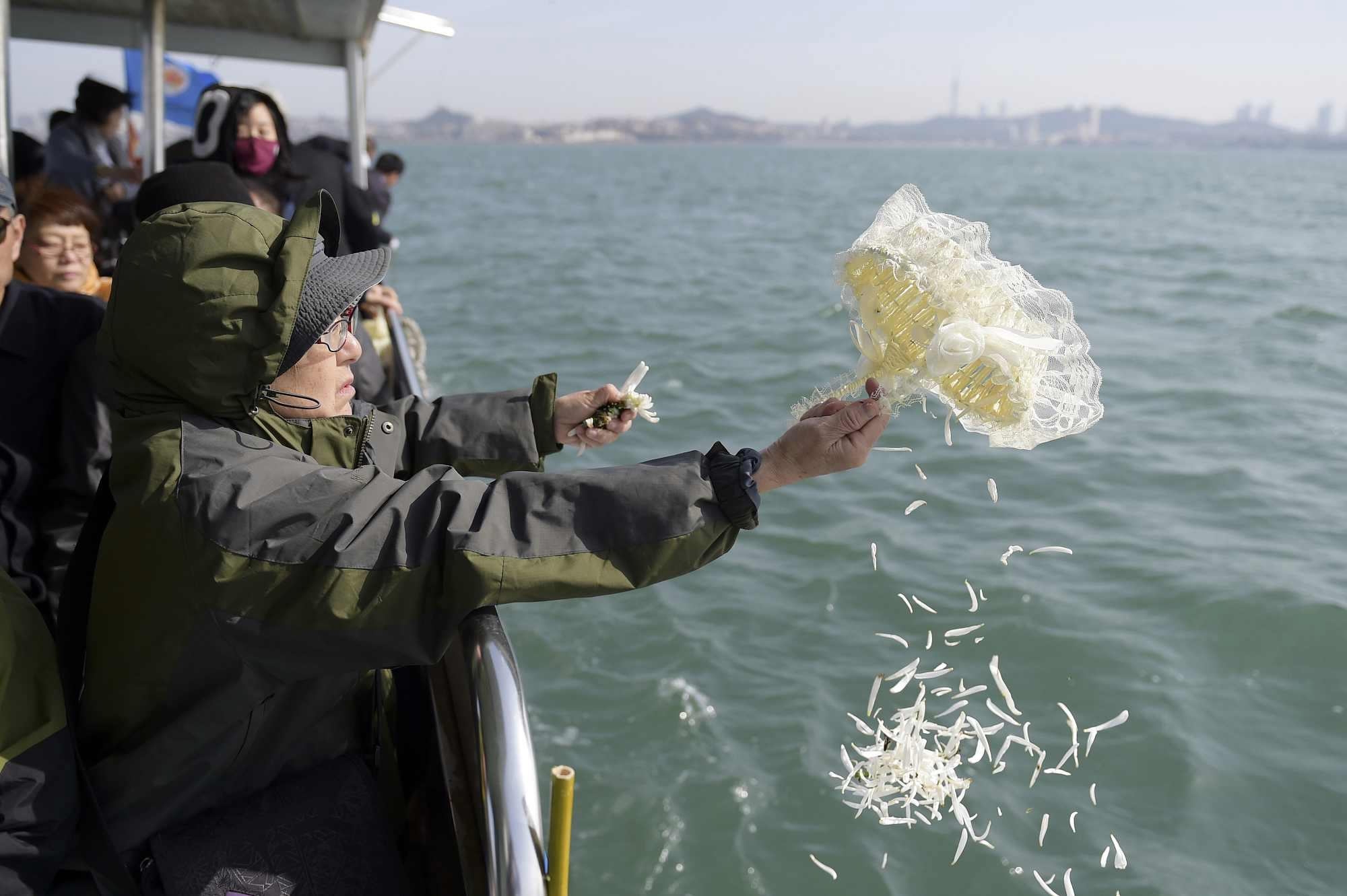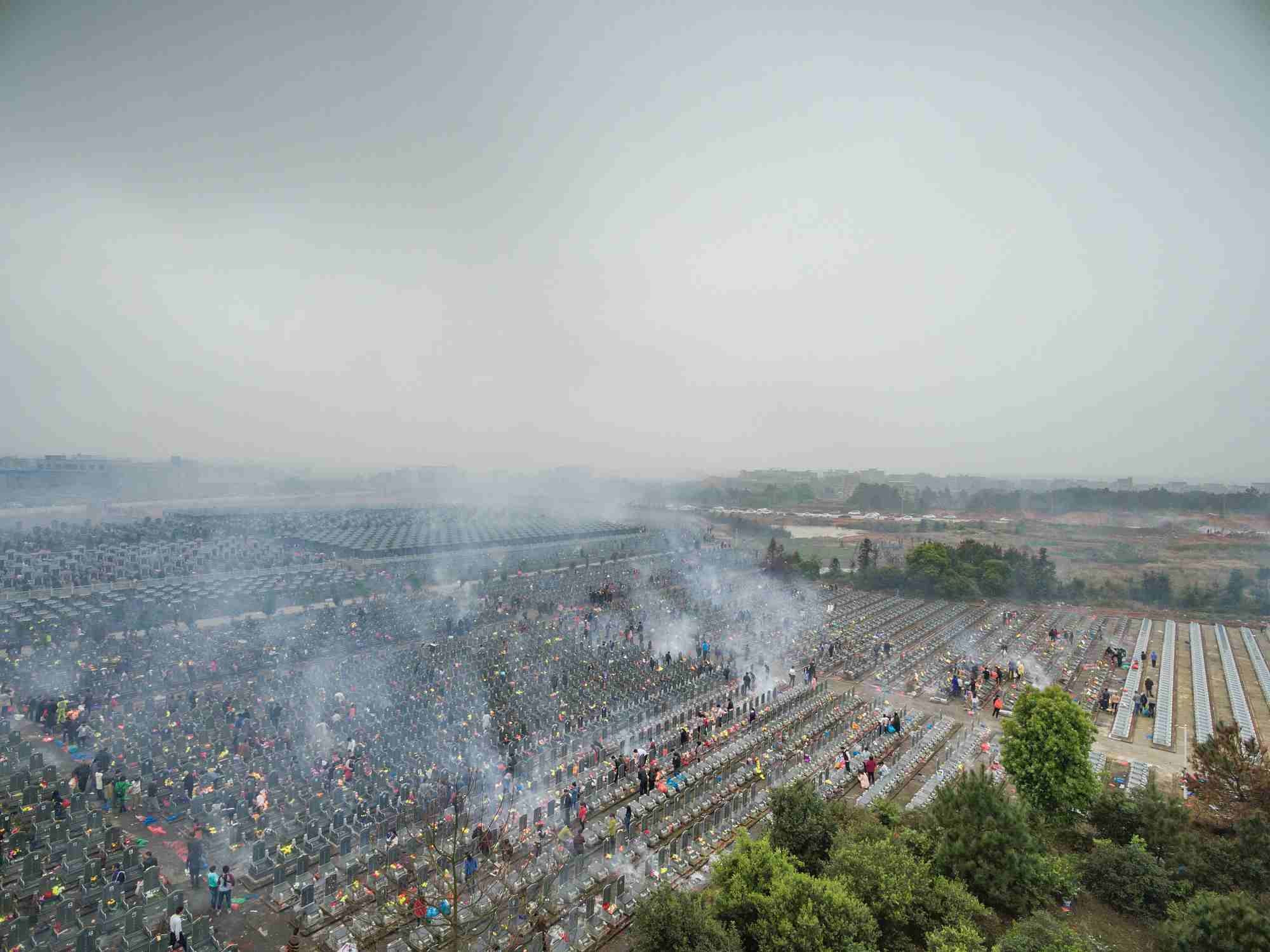In China, visiting the grave sites of the deceased and burning incense are part of a tradition as old as the Qingming Festival, or Tomb-Sweeping Day. However, with grave prices upping and awareness about the detrimental effect of some practices, such as setting paper effigies of money and other valuables on fire and setting off firecrackers, on air quality gaining ground, some are turning to the sea for their loved ones to rest in peace.
In Dalian, a coastal city in northeast China’s Liaoning Province, a special memorial was held on Saturday to mark the 20th anniversary since sea burials were introduced.

Sea gulls follow a vessel carrying families who have buried their loved ones at sea in Dalian city, Liaoning Province. /CFP Photo
Up to 500 people participated in the event, boarding a vessel to honor their relatives whose bone ashes were scattered in the sea. They threw flower petals as they mourned the passing of their family members, and instead of being shrouded in plumes of smoke from the burning of paper offerings, they were surrounded by sea gulls.
According to the local government, Dalian started to provide sea burial services for its residents in 1997, and has held over 200 collective funerals ever since. The new method has increased by an average of 20 percent every year, saving at least 45,000 square meters of land used for ground burials.
Dalian is not the only city promoting burial at sea in China.
Many other coastal cities, like Qingdao and Weihai in east China’s Shandong Province and Shenzhen city in south China’s Guangdong Province, have also adopted eco-friendly burials.

People scatter flower petals into sea in Qingdao city, paying tribute to their lost ones. /CFP Photo
After years of publicity, the idea of having one’s ashes scattered in sea is started to sink in among Chinese people.
Mao Qinglian, an 80-year-old resident of Dalian, said she has agreed with her husband that they would be buried at sea.
In Qingdao, local authorities introduced a ban on burning paper offerings last month, while offering discounts of up to 1,000 yuan (145 US dollars) for those who choose having their ashes spread at sea.
Eco-friendly burial methods have been trending in recent years as people’s attitudes change. Tree burials, flower burials and grassland burials are also being recommended in many inland cities.

Burning paper offerings and incense are traditional ways of marking Tomb-Sweeping Day. /CFP Photo
The surge of new methods of burials have saved local authorities acres of land for graveyards, while easing the heavy financial burden for some as well, since prices for graveyards have been sharply increasing in recent years.
As forms of burials and tomb sweeping have been evolving, many Chinese cities have also been promoting innovative ways of paying tribute to the dead, such as sending post cards with poetry.
People say that despite the forms of expressing their grievance are being simplified, the sense of respect for the tradition at heart of the festival should never be reduced.
Related stories:









